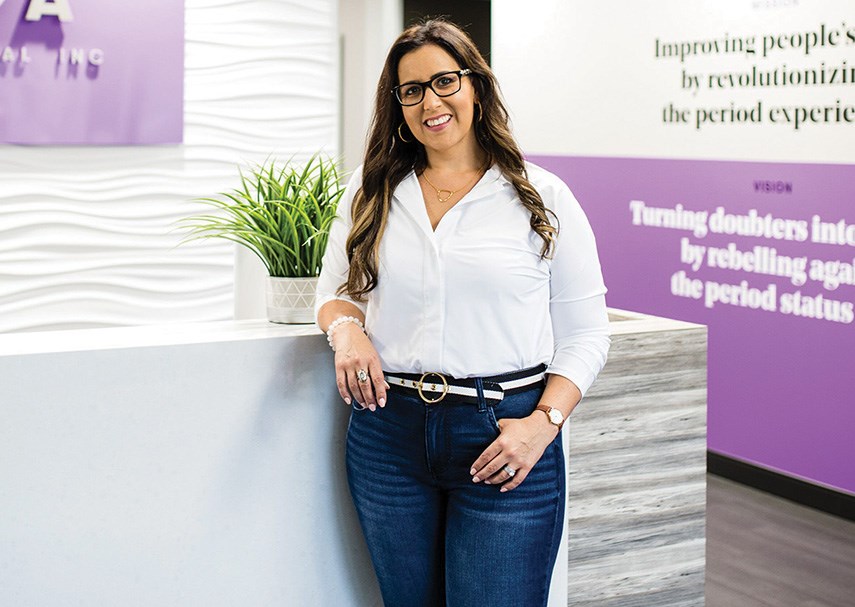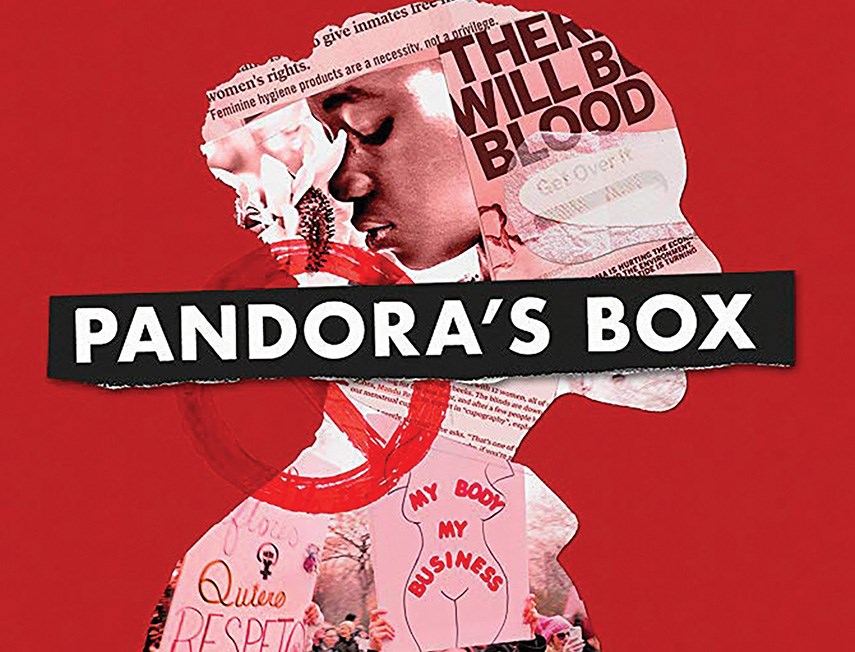Pandora’s Box: Lifting the Lid on Menstruation. Director: Rebecca Snow. Whistler Film Festival, Friday, Dec. 6, 4 p.m. at Village 8 Cinemas (Theatre 7) and Saturday, Dec. 7, 3:30 p.m. at Village 8 Cinemas (Theatre 6).
Whatever it is you think you know about menstruation on a global scale, it is not enough. This film about period poverty will have you seeing red.
Pandora’s Box, a documentary film from executive producer Carinne Chambers-Saini, premieres this weekend at the Whistler Film Festival, and is a global look at the far-reaching implications of not having access to feminine hygiene products as well as the stigma of a woman’s monthly cycle.
Filmmakers journey to Kenya, where girls miss school and drop out altogether because they don’t have access to sanitary products. In India, 60 per cent of girls are told nothing about their periods before they have one, and only 15 to 20 per cent use sanitary napkins.
But it’s far from being a developing-world issue. Period poverty (not having regular access to feminine hygiene supplies) and shame around the issue means that girls and women miss school and work in the U.K., in the U.S., and right here in Canada, where one in seven girls misses school because she has her period. Girls are hobbled in their race for equality from the moment they start puberty.
A woman will have roughly 450 periods in her life. That’s 2,500 days, or seven full years of bleeding. Lifetime cost? About US$6,100. The key is open conversation about an issue that was taboo for centuries. People used to think that menstruating women could sink ships and destroy crops. “The Curse,” her “Monthly Bill,” and “Aunt Flo” coming to visit: even in North America we couldn’t acknowledge menstruation head-on. (Fun fact: Courteney Cox was the first one to say “period” on national TV, in a 1985 Tampax ad.)

It became a passion project for Chambers-Saini, the Canadian CEO and co-founder of DivaCup, a modern, environmentally friendly alternative to tampons and menstrual pads. She attended the first-ever Period Con, a series of meetings and workshops centred around the menstrual movement, and was floored by the stories that she heard. “Even as someone within this industry, it was so shocking to me,” she says. “I said ‘we need to document this, we need to get a crew in here.’”
The result was over 1,000 hours of footage. Participants talk frankly about thinking they were ill or dying when they got their periods, of having to trade sex for sanitary products before they hit their teens, of having to ration and re-use products in U.S. prisons. It “definitely was a challenge” to pare down the hours of footage to a manageable film length, says Chambers-Saini, but she’s happy with the result. “I think there’s a beauty and an innocence, a hope in each of the stories.”
Director Rebecca Snow directs, with mostly female crew. The decision “happened organically” according to Chambers-Saini but says it was “definitely aligned with our values.” She points to the experience that women bring to the subject matter of the film and the fact that women in film are given fewer opportunities than their male counterparts. She stresses, however, that “having men as part of the conversation is critical. That’s important to break down those stigmas,” noting that men are doing the majority of the legislative decision-making.
Speaking of nonsensical legislation: according to the film, in certain U.S. states marshmallows are exempt from taxation, while tampons are taxed. Ditto things like cowboy boots, fruit roll-ups, golf club and gun club memberships, bibles, and yes, Viagra, proving that what goes on downstairs for men is more important than for women. Until the GST was lifted on feminine hygiene products in 2015, women handed over an estimated $36,398,387 in tax to the Canadian government.
Chambers-Saini was part of the menstrual equity movement long before the term was coined. Mom Francine started looking for an alternative from the moment she got her own period at age 13. It was the 1960s and “she was so limited by the products of the time,” Chambers-Saini says. “She’d watch her brothers at the beach or climbing trees and she couldn’t join them… that fueled a lot of her frustration.” Francine promoted one of the earliest versions, based on a menstrual cup concept that has been around since the ’30s. After she graduated from Laurier School of Business, Chambers-Saini joined her mom and modernized the product, now used worldwide.
Last month Chambers-Saini was awarded the Trailblazer Award at RBC’s Canadian Women Entrepreneur Awards from among 9,000 applicants. “It was a record year of applicants so to even make it to the finals was such an honour,” she says. “I thought I would be composed, but by the time I got up to the stage I couldn’t breathe!” Mom Francine, now retired, was at the ceremony and will be at the Whistler premiere. “It has been a family affair. And she’s just as passionate today as she was almost 30 years ago.”
Chambers-Saini and her husband have a 10-year-old daughter and almost nine-year-old son. She talks to them both openly. “I feel really strongly about it. ... They know all about the Diva Cup, I show it to them. That’s part of it: overcoming the stigma.” We tend to follow the same period patterns as our mothers and grandmothers, right down to the brand, but Chambers-Saini sees that changing. “Social media has allowed a whole new generation talking about reproductive health in new ways,” she says. “Are we there yet? No, not yet. But it’s going in the right direction.”
Pandora’s Box had the second-most ticket presales at the Whistler Film Festival – bested only by The Irishman – and is also a WFF19 Programmer’s Pick. For more information go to whistlerfilmfestival.com and pandorasboxthefilm.com.



